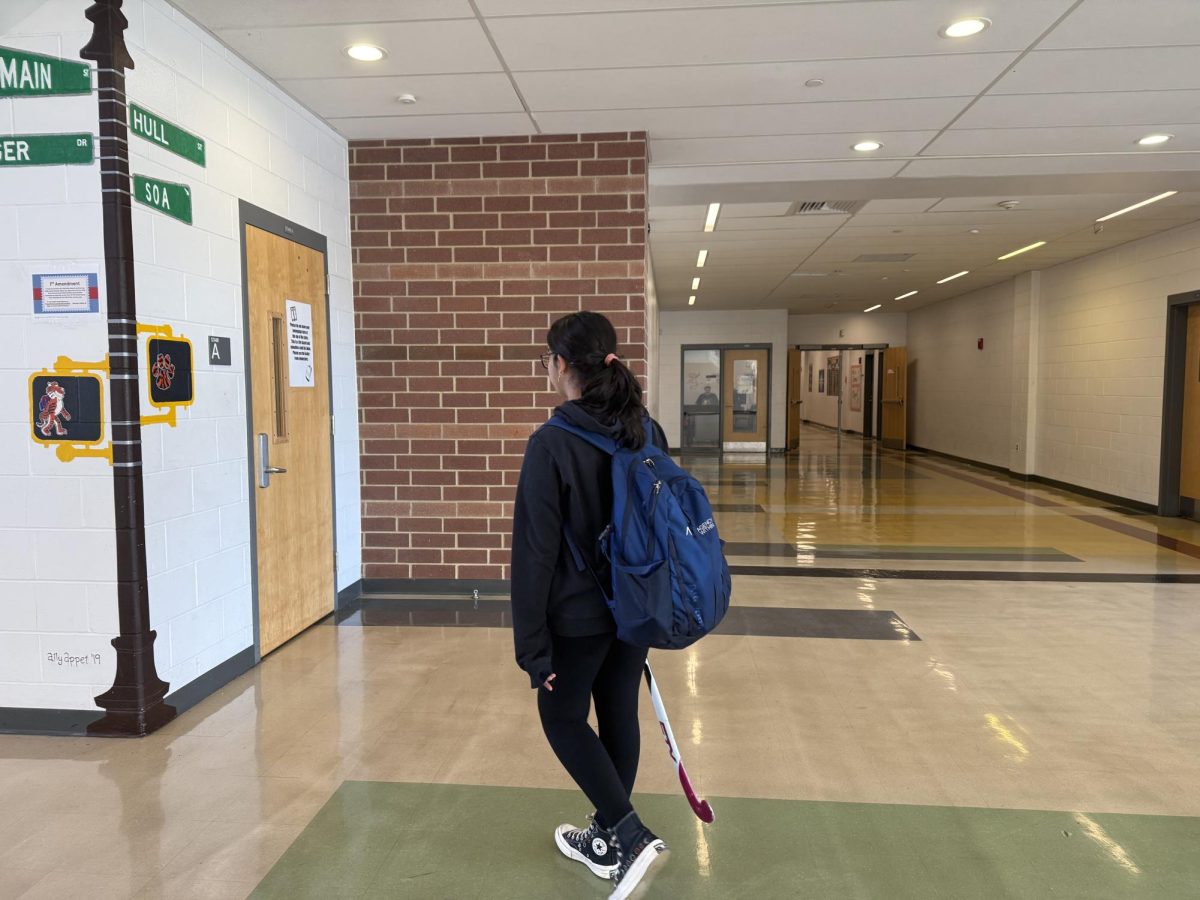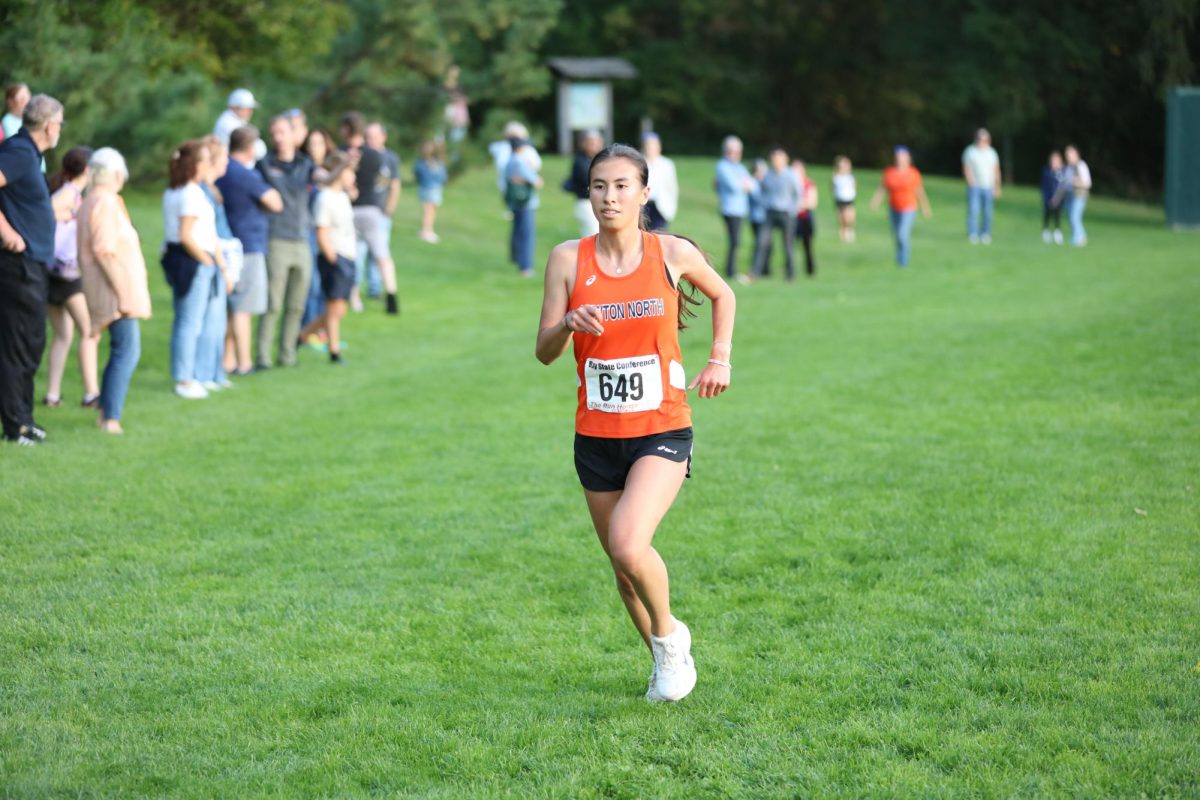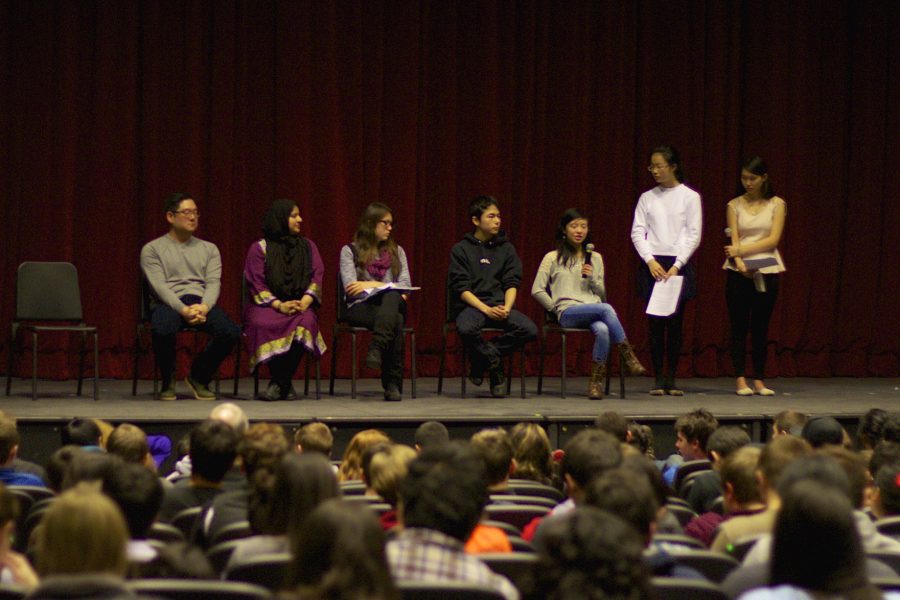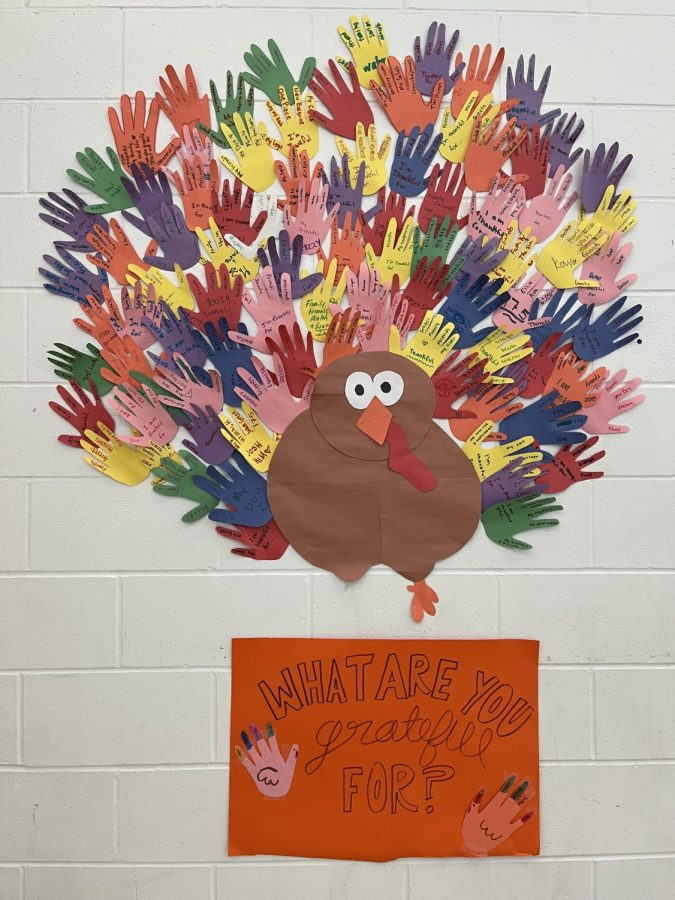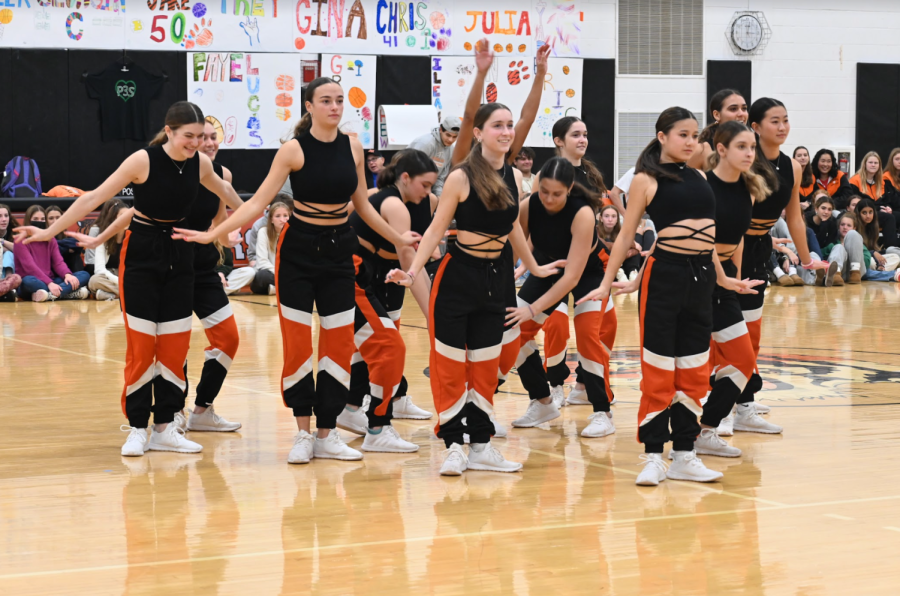B-block
by Emily Moss
As part of the Asian Culture Assembly during B-block Wednesday, best-selling authors Marjorie Liu and Celeste Ng spoke to students about their experiences growing up in Asian-American households and discussed the ways in which their backgrounds have influenced their writing.
Liu—who is half Taiwanese-Chinese—has written 21 novels, more than 100 comics, and numerous novellas and other short stories in the paranormal romance and urban fantasy genres, many of which feature Asian-American characters.
She described the racial and cultural insecurities she experienced as a child, noting that when she was in school, “no one ever talked about what it meant to be biracial.”
As a result, Liu said she found it difficult to identify fully with either her Asian side or her American side. For example, she noted that although she was raised “like the stereotypical Chinese girl” and grew up amidst a large Chinese community in Seattle, she was denied entry to the Asian-American club in college because she was half white.
“People live by definition, so if you’re a person that doesn’t fit the mold, that’s a problem,” said Liu. She added, “It’s oddly isolating because you feel like you should be part of a community, but you’re not.”
Ng, who grew up in Pittsburgh and later in Cleveland, also felt a “dual identity” growing up, saying that her insecurities stemmed largely from the fact that there were very few other Chinese families in her neighborhood. She recalled that she felt pressure to perform at a high level as a child because her status as one of the only Asian students in her school meant that her peers would develop stereotypes based on her behavior.
Even within her extended family—and later, with students in the Asian club at the University of Michigan—Ng said she did not always feel a sense of belonging.
“I felt like an imposter because I didn’t speak Chinese or live in China,” said Ng, adding that for a long time, she felt unqualified to write about Asian characters.
However, like Liu, Ng noted that her Asian-American background eventually “creeped” its way into her work. For example, her novel, Everything I Never Told You follows a biracial Asian-American family.
Both Liu and Ng commented on the predominance of white characters in books and in the media.
“The way things are now, white is the default color,” said Ng, adding that the new sitcom Fresh off the Boat—which follows an Asian-American family—is one of the first of its kind in The United States.
“If you’re not used to seeing a family that looks like you on TV, it’s a really empowering thing,” said Ng.
D-block
by Andrew Mannix
Five panelists spoke Wednesday about the challenges of being Asian-American in The United States during D-block in the auditorium as part of Asian Culture Day.
Senior Julie Duong and junior Sabrina Ng asked panelists history teachers Albert Cho and Subheen Razzaqui, and seniors Bali Connors, Lizz Fann, and Jonah Samuels questions about living as an Asian American.
A common theme of the presentation was that Asian-American does not just mean Chinese-American. Razzaqui identified as Pakistani American and said that Pakistani Americans “don’t always get put in the Asian-American label because they didn’t come until post 1965 and that they are the new kids on the block.” Razzaqui also identified herself as South-Asian American for that very reason. Cho identified as Korean-American and Samuels identified himself as Japanese-American.
Both Fann and Connors agreed that there are unfair stereotypes against Asians although some people don’t realize that.
“There are times where a comment slips out that does not seem offensive but it is kind of bad at the same time,” said Connors.
Fann recalled a particular experience in which certain individuals said racial slurs towards her, and it difficult to handle.
Cho and Razzaqui agreed that being an Asian-American in The United States can be different. “It’s really hard to navigate between two different cultures when I did not belong in either. I asked myself, ‘Am I a sellout because I like the American culture just as much or am I betraying anyone? Am I kidding myself trying to be in a culture I don’t belong in?’” Razzaqui said.
While Razzaqui explained that she had a difficult time fitting into the American lifestyle not knowing where she belonged, Cho was just the opposite.
Cho was born in Chicago and raised in Oregon, graduating in a high school where there were only four Asians out of around 2000 students. For him it was not hard to fit into the American culture, it was relatively easy. However once he got to college that there were more people of Asian descent that he could relate to.
All the panelist shared different experiences about their ethnicity and how they portray themselves in relation to their ethnicity. Panelists agreed that embracing their culture and trying to find a balance between the two sides was key.
F-block
by Jessica Tharaud
UMass Boston Assistant Professor Andrew Leong spoke in the auditorium about Chinese heritage in this country during F-Block Thursday as part of Asian Culture Day.
Leong began by drawing parallels between the recent movement “Black Lives Matter” and the hardships faced by the Asian-American community.
In an amusing moment, Leong joked that he defied Asian stereotypes when he was unable to fix the projector. He explained that although Asians today are considered a “model minority,” in the nineteenth century they were considered sub-par.
Next, Leong displayed lists of laws and court cases that limited the rights of Asian-Americans, discussing in depth the 1854 case of People v. Hall, which decided that Asians could not testify against whites.
In 1862, a key act was passed that taxed Chinese immigrants for living in the state of California. Leong described the law as geared with the specific intention of discouraging Chinese immigration, a precursor to the ban on all Asian immigrants in the 20th century.
Additionally, Leong discussed the history of Chinese immigrants in California, remarking that the land today known for winemaking was made possible through the labor of the Chinese, but he also noted that very few winemakers are Chinese.
To explain the importance of Asian-American history in the United States, Leong said that Asian-American history is not only for Asian-Americans. “This is American history,” he said.
G-block
by Jake Sims Speyer
Boston College associate professor Dean Hashimoto spoke to students about Japanese internment within The United States during World War II as part of Asian Culture Day G-block in the Auditorium.
As a son of a survivor of the internment, Hashimoto has dedicated large amounts of time studying the treatment of Japanese living in America during World War II. He described how this issue “brings into place many social and legal issues.”
After the bombing of Pearl Harbor, Hashimoto’s father heard the news and wondered the implications of such an event. He described how treatment of Japanese living in America quickly turned sour, and they were soon sent to internment camps in the midwest.
Relating the story to his own life, Hashimoto explained to the audience how he was bullied every day by the sons of U.S. airmen in his hometown of Merced, California. When discussing the internment in school, Hashimoto’s teacher thought it was “the right thing to do.”
Hashimoto then discussed the Korematsu v. The United States court case (1944), in which the constitutionality of the internment was questioned. However, the Supreme Court ruled the actions constitutional. In 1983, charges against Korematsu were dropped and his criminal record cleared in a case that Hashimoto was involved in.
Hashimoto concluded by saying, “In every major war, there has been a suspension of civil liberties in a very predictable way.”
Panels, guest speakers present as part of Asian Culture Day
February 12, 2015
0
Tags:
Donate to The Newtonite
More to Discover








